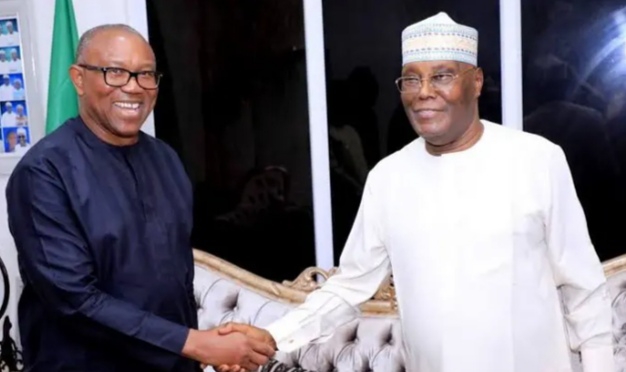As Nigeria’s economic challenges continue to deepen, a growing number of citizens in Northern Nigeria are throwing their support behind the emerging political alliance between former Vice President Atiku Abubakar and former Anambra State Governor Peter Obi.
This rising tide of support was confirmed by Mukhtar Adnan, a former Kano State House of Assembly aspirant, who told Daily Post in an interview that the Obi-Atiku coalition is gaining traction across Northern communities—especially at the grassroots level.
According to Adnan, widespread disillusionment with the current administration’s handling of the economy is fueling public interest in the alliance, seen by many as a credible alternative ahead of the 2027 general elections.
“People are hungry, angry, and tired. The hardship has become unbearable. Basic services are out of reach. Food prices are skyrocketing. Inflation is killing the poor. The president appears completely out of touch,” he said.
Adnan stressed that what began as elite-level political speculation is now evolving into genuine public interest, with ordinary Nigerians—especially those in rural communities—keenly watching and discussing the possibility of a unified front between Atiku and Obi.
“When you engage with people in the villages, you’ll be surprised at how informed they are. They’re discussing politics. They are weighing their options. And more and more of them are saying this coalition gives them hope.”
He noted that many people have lost faith in the ruling All Progressives Congress (APC), which has held power since 2015. The unmet promises, economic instability, and widespread unemployment have left many Nigerians—particularly in the North—eager for change.
Adnan explained that the Obi-Atiku alliance represents, for many, a convergence of regional balance, administrative experience, and economic credibility.
“We’re seeing an alignment of South and North, Christian and Muslim, elite and masses. This is what the country needs—unity with purpose. If Atiku and Obi can work together, listen to the pain of the people, and present a real policy-driven roadmap, they can break the APC’s dominance.”
He further warned that if the current administration fails to urgently address the deepening hardship across the country, the 2027 elections could be a tipping point.
“This is not about big speeches or social media campaigns. It’s about food on the table, jobs for our youth, and dignity for our families. Right now, the Obi-Atiku coalition seems to understand that urgency better than those in power.”
Adnan concluded by urging opposition leaders to stay connected with the people and build trust through honest dialogue, community engagement, and clear solutions.
“The North is ready for change. But that change must come with sincerity and substance. Not just another round of promises,” he said.
With just under two years to Nigeria’s crucial 2027 elections, the political atmosphere is heating up, and grassroots sentiments especially in regions previously seen as strongholds of the ruling party could prove decisive.













